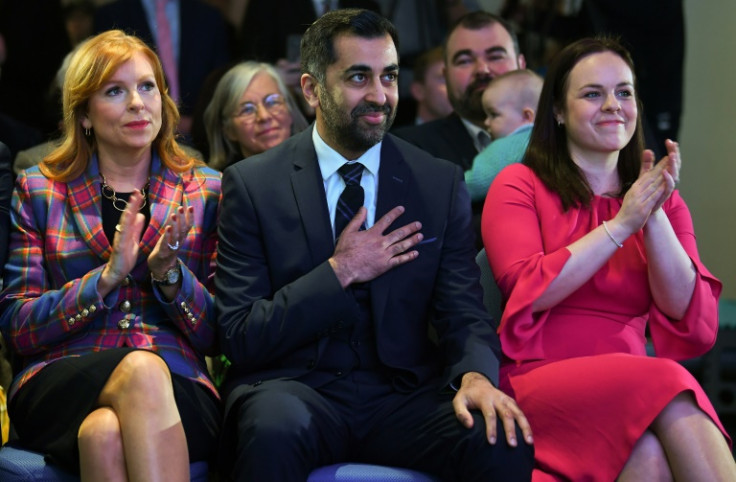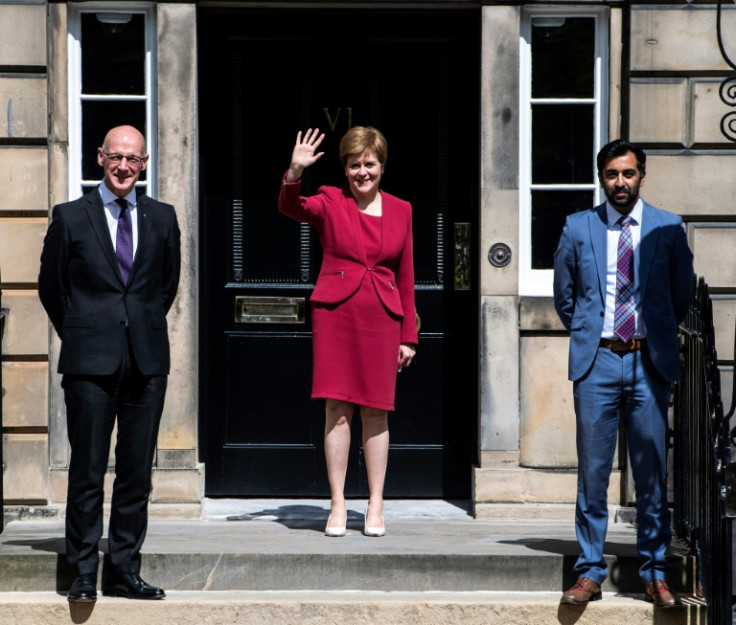Scotland's First Minister Yousaf Quits After A Year

Humza Yousaf announced his resignation as Scotland's first minister on Monday, before he was due to face two confidence votes this week sparked by his ditching of junior coalition partners in a row over climate policy.
The 39-year-old quit following a turbulent year as head of the devolved administration, during which support for his pro-independence Scottish National Party (SNP) has fallen.
Yousaf had been facing growing calls to resign since unceremoniously ending the SNP's power-sharing deal with the Scottish Greens in the Scottish parliament last week.
His government had earlier abandoned ambitious targets for the transition to net-zero carbon emissions, angering the Greens.
The opposition Scottish Conservatives then lodged a vote of no-confidence in Yousaf, which was due to be held as early as Wednesday and which the first minister was at risk of losing.
Scottish Labour also lodged another no-confidence vote in his government.
The Tories, Labour, Liberal Democrats and Greens had all said they would vote against him in the personal vote, forcing him to seek the backing of the sole lawmaker from the pro-independence Alba party.
Alba's Ash Regan is a former SNP colleague of Yousaf who ran against him in the March 2023 leadership election to succeed Nicola Sturgeon as first minister.
Yousaf -- the first Muslim leader of a major UK political party -- said in a statement that he thought winning was "absolutely possible".
But he added that he was "not willing to trade in my values or principles or do deals with whomever simply for retaining power".
He added: "I have concluded that repairing our relationships across the political divide can only be done with someone else at the helm."
Yousaf's pro-independence SNP has 63 members in the 129-seat parliament -- two short of a majority. The presiding officer has a casting vote.
Yousaf initially said he had no intention of quitting and intended to win the confidence votes.
But following his announcement, parliament now has 28 days to choose a new first minister.
He only became Scotland's leader 13 months ago, after Sturgeon sensationally announced she was quitting, citing tiredness after eight years in charge.
Yousaf defeated Kate Forbes and Regan in a bruising contest that highlighted divisions in the party between those on the left wing and others closer to the right.
His leadership was quickly plunged into turmoil when Sturgeon was arrested with her husband, Peter Murrell, over claims of mismanagement of SNP finances.
Murrell was charged in the case earlier this month. Sturgeon has not been charged.
Sturgeon had been the figurehead of the Scottish independence movement.
She oversaw a surge in support for the SNP, particularly after Brexit -- in which Scotland opposed leaving the European Union -- and during the Covid pandemic.
But the SNP, which has run the Scottish government since 2007, has suffered a drop in popularity under Yousaf.
He also came under pressure over controversial new laws which made it an offence to stir up hatred against a number of groups, including transgender people.
The law has been heavily criticised, including most prominently by "Harry Potter" author J.K. Rowling, who lives in Edinburgh.
Relations between the SNP and the Greens were also strained by the recent pause in prescribing puberty blockers in Scotland.
Some within the SNP wanted Yousaf to end the coalition with the Greens because they felt the deal was pulling the party further leftwards.
The SNP's slump has also come in the context of a resurgent Labour party, which is tipped to win a UK general election due later this year.
Scotland voted against independence in a referendum in 2014, with 55 percent of electors choosing "No".
The SNP has argued that the UK's vote to leave the EU in 2016 had put separatism back on the table, because Scotland overwhelmingly voted to remain part of the bloc.
But the party, in power in Edinburgh for 17 years, has struggled to build momentum for another vote, and the independence movement is at arguably its lowest ebb in recent memory.
The Scottish Parliament, re-established in 1999, has limited powers to set policy in areas such as health, education, transport and the environment.
The UK government in London retains powers for countrywide issues such as defence and foreign policy.


© Copyright AFP 2025. All rights reserved.





















